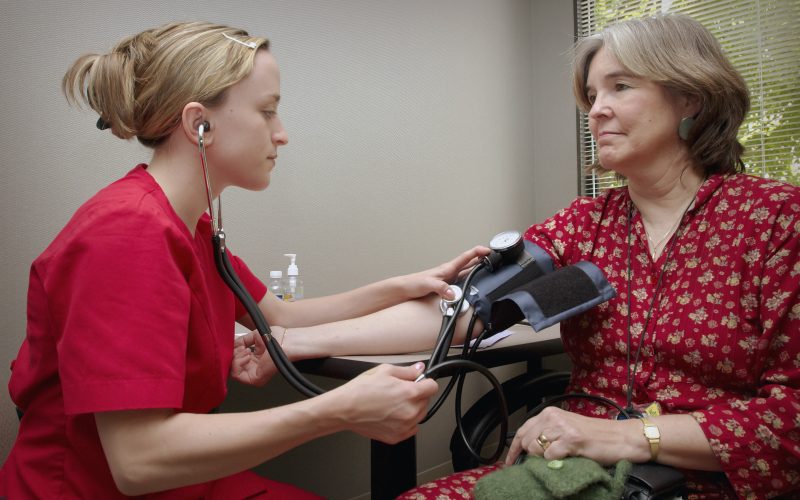Hypertension, also known as high blood pressure, is a common condition that affects millions of people worldwide. It occurs when the force of blood against the walls of your arteries is consistently too high, which can lead to a variety of health problems, including heart disease, stroke, and kidney damage. In this article, we will explore the causes, symptoms, and treatment options for hypertension.
Causes: Hypertension can be caused by a variety of factors, including genetics, age, and lifestyle choices. Some people are more susceptible to high blood pressure due to their family history, while others may develop it later in life due to poor diet and lack of exercise.
Symptoms: Hypertension is often called the “silent killer” because it typically doesn’t cause any symptoms until it has reached a dangerous level. Some people may experience headaches, shortness of breath, or nosebleeds, but these symptoms are not specific to hypertension and could be caused by other factors.
Diagnosis: The best way to diagnose hypertension is to have your blood pressure checked by a healthcare professional. A blood pressure reading consists of two numbers, the top number (systolic pressure) and the bottom number (diastolic pressure). A reading of 120/80 mmHg or lower is considered normal, while a reading of 140/90 mmHg or higher is considered high.
Treatment: Treatment for hypertension typically involves lifestyle changes and medication. Lifestyle changes may include eating a healthy diet that is low in sodium, getting regular exercise, quitting smoking, and limiting alcohol intake. Medications may include diuretics, beta-blockers, ACE inhibitors, or calcium channel blockers.
In conclusion, hypertension is a serious condition that requires careful management to prevent long-term complications. If you have been diagnosed with hypertension or are concerned about your blood pressure, it is important to speak with your healthcare provider about treatment options and lifestyle changes that can help manage your condition. With proper care and attention, hypertension can be controlled, and you can live a healthy and active life.












